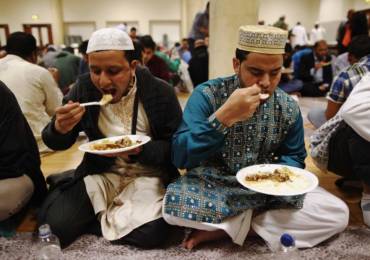This year, the Islamic fasting month, Ramadan has begun in the midst of lethal COVID-19 pandemic.
Ramadan, which started on April 23, a month-long time of fasting, worship, and dedication to Allah. It is also the month in which the Quran being first unveiled to the Prophet Muhammad (SAW).



Source: Daily active
Muslims who are healthy enough are demanded to fast from dawn to dust until 30 days. Furthermore, Ramadan is the month in which comes together for a feast or prayers.
Mosques across the world are normally at their fullest during Ramadan, but many are now closed in Pakistan due to social distancing, and self-isolation tactics. The coronavirus has wreaked havoc; hence, governments have made it mandatory to practice social distancing
Consequently, this year Ramadan is very different. People are not able to practice social gatherings and congregational prayers at full spring.
The pertinent question here is that what about the health repercussions of celebrating Ramadan under lockdown and amidst a deadly pandemic?
Will fasting affect a man’s possibilities of getting the coronavirus?
Factually, fasting is considered to be advantageous to the body in several ways, including its significant effect on boosting our immune systems. Possibly our ancient predecessors identified the benefits of fasting: fasting is also celebrated in the period of Lent in the lead-up to Easter for Christians; during Yom Kippur Jews observe fasting.
There is also proof that the old Egyptians fasted for long periods to prevent their bodies from illnesses and disease.
Dr. Amir’s research
Recently, researches have revealed that fasting can have advantageous effects on the immune system. Fasting reduces the amount of general inflammation that occurs in cells throughout the body.



Source: Twitter
Dr. Amir, NHS Doctor in his article to a news portal talked about the benefits of fasting during the COVID-19 pandemic.
“Fasting is thought to put the body into an “energy conservation mode” due to the lack of nutrients coming in. In an effort to save energy, ;the body recycles many of its old or damaged immune cells, which later promotes the generation of new, healthier immune cells when the fasting period ends.”
“The key thing that sets a religious Ramadan fast apart from diets that promote weight loss through intermittent fasting regimes is the abstinence from drinking water. This may make all the difference.”
“While a study has shown that prolonged water fasting beyond 12 to 24 hours can have a slight detrimental effect on the immune system, putting you at a slightly increased risk of catching any kind of infection; it also showed that immunity returned to a better state soon after eating and drinking again.”
“Evidence suggests that abstaining from both food and water for up to 12 hours can have an overall beneficial effect on your immune system,”
Above all, “O you who believe, fasting is prescribed for you as it was prescribed for those before you, that you may develop God-consciousness.” (Quran 2:183)
Thus, as per Allah, fasting is prescribed. Meaning thereby fasting has a plethora of health benefits.
What do you think of the story? Tell us in the comments section below.














